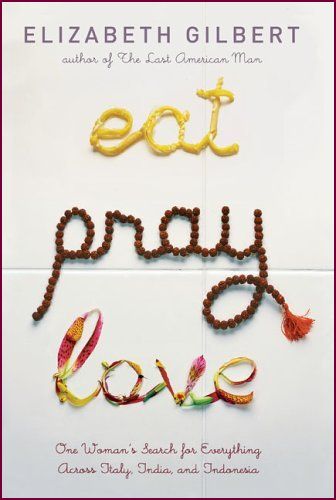The success of Elizabeth Gilbert’s book Eat, Pray, Love is founded on the almost universal dream of completely changing our circumstances at some point: Leaving a spouse or finding one, landing a better job—or, for some, any job—losing weight and feeling attractive and alive again, taking the trip of a lifetime.

Change is a choice. Crises may hit us and force some external re-arrangement of our lives, but even in those situations, we have to choose to change.
Liz Gilbert’s turning point came one night in her bathroom as she was on her knees, sobbing yet again. Then suddenly she found herself praying. The choice to change was in continuing that conversation. And while things didn’t change immediately in her life—in fact they got worse—the seed was planted and three years later she’s off on a world trip financed by a book advance.
AA suggests that before people can turn away from alcoholism they need to hit bottom. I know learning that I was officially “obese” was the “bottom” that provoked me to start making different food choices and lose 35 pounds. And a friend of a friend finally decided to leave her long, turbulent marriage the night their house caught on fire and her husband rushed to the window of their bedroom where the firemen had placed a ladder for their escape. He never checked to see if she was alright but scrambled to safety with nary a look back. That was her “bottom.”
Do we have to hit bottom before we change? Do we, like Liz Gilbert, have to cry out in pain from the well of despair before we turn our life around? And, most importantly, why do we wait so long?
Author, entrepreneur and motivational Robert Kiyosaki tackles this problem in a recent article in Success magazine. He talks about the period after we’ve decided to change, when we have to exert ourselves with no apparent gain. He calls it “the difficult period of maximum effort with minimal gains.” If we stick with our resolve, with our vision through this tough period, we’re on our way to success. If we backslide, we have to go back to “maximum effort with minimal gains” again.
But I ask you: Why do we make it so hard on ourselves? Why is it so hard to change our behaviors when most of the time, we know (we really know deep inside) that we need to change? I’d be interested in your thoughts, your experiences in this regard. Maybe it will help us “wake up” sooner without quite having to hit that very hard, rock bottom place.





